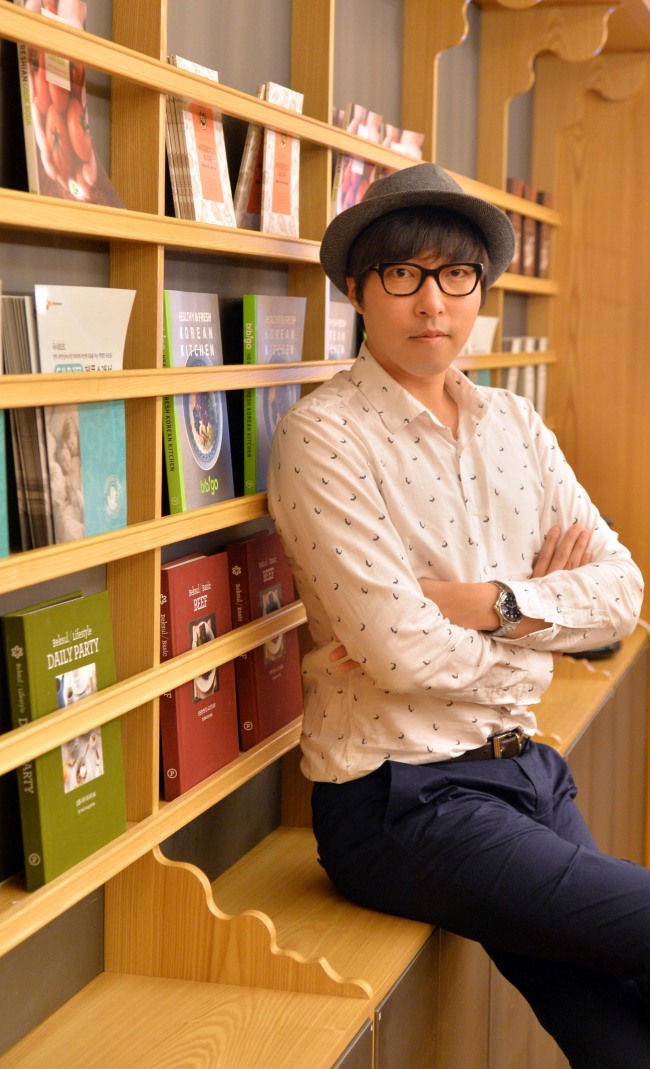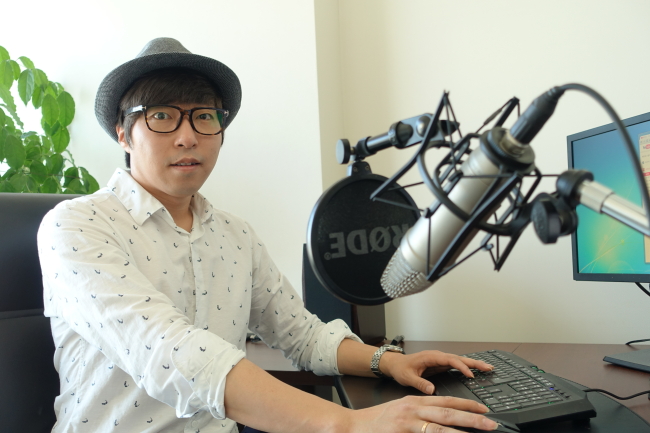[Weekender] Top Korean YouTuber shares secrets to his celebrity
By Korea HeraldPublished : May 29, 2015 - 19:08
South Korean YouTube star Na Dong-hyun ― better known by his alias “Great Library” ― says anyone can be a celebrity on the global video-sharing platform if they can stay consistent and unique.
“Some beginners think they should be more outstanding or brilliant than the current hit YouTubers. What you need, however, is sustainable content and a unique character,” Na said in an interview with The Korea Herald.
The 37-year-old has garnered 1 million subscribers on his YouTube channel by playing online games live and broadcasting them with commentary. His videos have been watched more than 330 million times.
“Some beginners think they should be more outstanding or brilliant than the current hit YouTubers. What you need, however, is sustainable content and a unique character,” Na said in an interview with The Korea Herald.
The 37-year-old has garnered 1 million subscribers on his YouTube channel by playing online games live and broadcasting them with commentary. His videos have been watched more than 330 million times.

To become popular on YouTube, consistency is the name of the game, the top YouTuber said.
“The idea of posting extraordinary content every day or every week is not sustainable. Instead, find something you can upload regularly,” he said.
That is why he is not sticking to one popular game such as League of Legends or Minecraft, which can draw more viewers and money. He thinks once the popularity of the game wanes, the livelihood of the game commentator will also come to an end.
“Instead, I try to play new games every time. Though my characters often get into trouble and get flustered, viewers still find it interesting to see my live reaction to the trouble,” he added.
By commentating on a number of different games, he has built an ability to react quickly to different situations and to make them entertaining.
Apart from consistency, being a unique character is also important for YouTubers, the content creator said.
“Just try to be a little funnier and entertaining with your voice or captions, and it can make your videos more unique. Then, monitor feedback and comments to improve your content,” he said.

When Na first started posting on the Internet in 2010, most game commentators used violent and vulgar language while playing games. He tried to set himself apart by being gentler and not using abusive language.
“By staying consistent and having your own character, I am sure anyone can make at least 1 million won ($900) a month,” he said.
Before Na became a YouTuber, he started his career as an online game player on a local Internet live video streaming service called AfreecaTV. “Broadcast jockeys” on the platform earn money through “star balloons,” which are given to them when audiences like their performance.
“Here, BJs must constantly react to and ask for the star balloons to make money, making it difficult to focus on creating content,” he said.
“That is why I moved to YouTube two years ago. YouTube’s revenue-sharing system seems more effective in developing content without such interruptions.”
On YouTube, content creators get money from advertisers based on the number of views through the YouTube partner system.
Banking on the reputation and popularity he earned through AfreecaTV, he made 700,000 won in the first month he moved to YouTube. The following month, he made 2 million won. Now, he is making around 30 million won a month.
YouTube has seen over 110 percent growth in watch time in Korea over the last year. Na also sees a promising future for the personal broadcasting industry.
“I don’t think personal media will replace mass media anytime soon, but it will continually grow to meet viewers’ individual needs, which mass media cannot satisfy,” he said.
Those working in the field have also been jumping into the advertising industry in recent years, changing advertising trends. They are focusing on creating interesting content instead of pushing consumers to buy products.
“This is possible because companies give more autonomy to them instead of getting involved in everything from A to Z,” Na said.
He has already worked with large companies including CJ Cheil Jedang, Coca-Cola and Jaguar to create their ads.
He predicts that the main viewers of YouTube and personal broadcasting will be housewives in a decade.
“Many of the ‘power bloggers’ are now housewives, who have a lot of information in diverse areas including cooking, childcare, fashion, real estate, drama and culture,” Na said.
When they shift from blogs to YouTube, they will get a bigger portion of the pie, he added.
By Shin Ji-hye (shinjh@heraldcorp.com)
-
Articles by Korea Herald




![[Music in drama] Rekindle a love that slipped through your fingers](http://res.heraldm.com/phpwas/restmb_idxmake.php?idx=644&simg=/content/image/2024/05/01/20240501050484_0.jpg&u=20240501151646)

![[New faces of Assembly] Architect behind ‘audacious initiative’ believes in denuclearized North Korea](http://res.heraldm.com/phpwas/restmb_idxmake.php?idx=644&simg=/content/image/2024/05/01/20240501050627_0.jpg&u=20240502093000)




![[KH Explains] Will alternative trading platform shake up Korean stock market?](http://res.heraldm.com/phpwas/restmb_idxmake.php?idx=644&simg=/content/image/2024/05/01/20240501050557_0.jpg&u=20240501161906)







![[Today’s K-pop] Stray Kids go gold in US with ‘Maniac’](http://res.heraldm.com/phpwas/restmb_idxmake.php?idx=642&simg=/content/image/2024/05/02/20240502050771_0.jpg&u=)